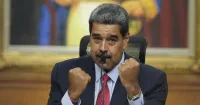Russian drone provocations reveal critical defense gaps — EU Commissioner Kubilius
global.espreso.tv
Sat, 01 Nov 2025 12:26:00 +0200

EU Commissioner for Defense and Space Andrius Kubilius stated this on Espreso TV."Russian provocations have demonstrated several important things for the EU. Some of them showed that our defense capabilities in detecting, protecting against, and destroying drones are not yet developed to the required level. So, to some extent, we can even be grateful for these provocations. Because now we are very quickly and ambitiously developing our counter-drone capabilities. The so-called 'drone wall' is now officially called the Counter-Drone Initiative. In this direction, we want to learn a lot from Ukraine. We strive to develop these capabilities jointly with Ukraine and with its participation. These initiatives are included in our large and ambitious action plan - the so-called defense readiness roadmap until 2030. This plan has been approved by the Council, and it is one of the key projects that we must develop in Europe as effectively as possible," noted Andrius Kubilius. According to him, there are two projects closely related to the EU's readiness to defend against aggression or provocations. One of them is the European Counter-Drone Initiative, and the other is Eastern Flank Watch. Both of these flagship projects are of great importance for the defense of all of Europe, especially for the border region."The second question is how exactly we should react to such provocations when our airspace is violated. Firstly, we must have the necessary capabilities to react. Secondly, political and military decisions - how exactly to react, shoot down, track, or act otherwise - depend primarily on the member states themselves. After all, defense policy in Europe remains the sovereign right of member states, which have collective agreements within NATO on defense planning," commented the European Commissioner.The politician noted that in this matter, the European Union and the European Commission do not play a significant role, but the main task is to help member states develop appropriate capabilities so that they are ready to implement any decisions they deem necessary."Secondly, Article 5 of NATO is crucial for the defense of the entire European Union and the European continent as a whole. As you know, all members of the Alliance recently, during the NATO summit, reaffirmed their readiness to fulfill the provisions of Article 5. And for this to be possible, all NATO member states must have appropriate defense capabilities. That is why member countries have committed to increasing defense spending to 3.5% of GDP for real defense needs and another 1.5% for defense-related areas. This is what we can say about Article 5: 'It is a powerful tool for collective security.' And we hope that this strength will be a sufficient argument to convince Putin not to test the effect of Article 5 in practice," Kubilius summarized.On September 14, Ukrainian President Volodymyr Zelenskyy offered partner countries assistance in training to repel Russian drones.On September 19, it became known that after Russian drones violated the airspace of Poland and Romania, the EU decided to use Ukraine's experience to build a 'drone wall.'







